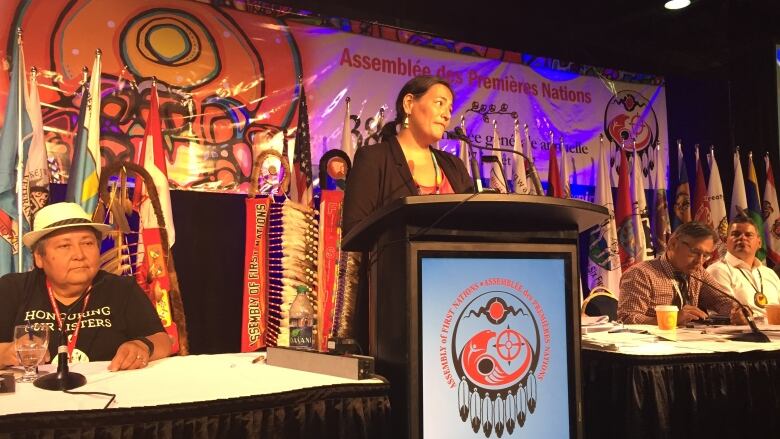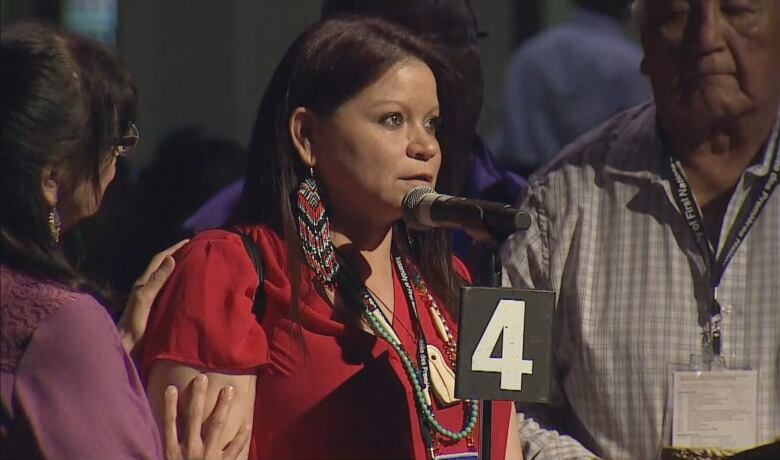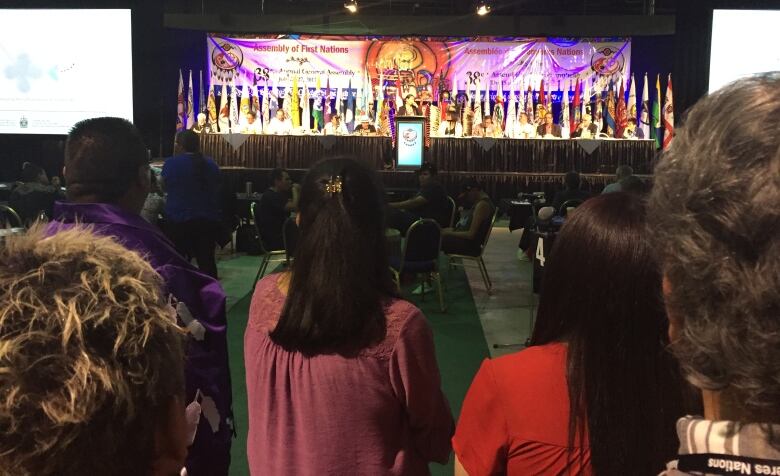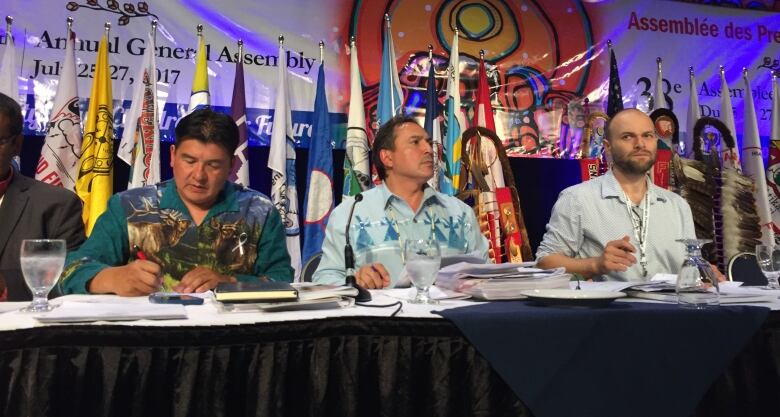'You failed': Missing and murdered inquiry commissioners confronted at AFN meeting
Families call for resignations, redesign as inquiry commissioners visit AFN meeting in Regina

There were some heated moments on day twoof the Assembly of First Nations gathering in Reginawhen the talks turned to the National Inquiry Into Missing and Murdered Indigenous Women and Girls.
Attending the meeting were two of the inquiry's commissioners, Michle Audette and Brian Eyolfson, who were confronted Wednesday by community leaders and families of the missing and murdered.
"You failed in communications, you failed to build trust, you failed to build relationships with families," said Hilda Anderson-Pyrz, co-chair of the Manitoba Coalition for Families of the Missing and Murdered.
"I stand here today to ask the commissioners to respectfully step down, and I'm calling for a hard reset as a family member."
Anderson-Pyrz wasn't alone in calling for resignations and a 'hard reset' a redesign of the process from the ground up. Several families who attended the assembly also called for new commissioners and a new process.
Call to start over
"It's probably my last speech, who knows?" Aaudette said after the session. "I was asked if I would step down several times ... I heard, I respect and I understand."
However, she also told the audience that she was given an eagle feather by other family members who told her "not to fail."
Apoint of contention for many families is that the inquiry cannot open old cases or hold police accountable for mishandling cases.

"It's a failure and it's a dishonour to my sister," said Gerri Pangman, whose sister Jennifer McPherson was killed in April 2013.
"You can say that this inquiry is going to be a success no, it's a failure. It failed my sister."
'We were too silent'
Delays, the lack of communication and the recent high-profile departures of senior staff and commissioner Marilyn Poitras have shaken many people'sfaith in the inquiry.
Commissioner Audette admitted mistakes were made, especially when it comes to communication.

"I was anxious for this moment," she told the assembly. "Because we were too silent. We were too silent."
On Tuesday, AFNNational Chief Perry Bellegarde recognized the frustration but called for patience, saying the inquiry is too important to abandon.
"Too many people lost loved ones,"he said.
"We need to support the work of these commissioners and their staff.The families must be front and centre. Yes, we want to help improve communications, and that's why the commissioners are here."
However, chiefs are set to debate a motion on Thursdaycalling for commissioners to step down.
Education, consultation

The top court quashed plans for seismic testing in Nunavut, delivering a victory to Inuit who argued they were inadequately consulted before the National Energy Board gave oil companies the green light to use blasts of sound to detect petroleum reserves below the sea floor.
But it also dismissed a legal challenge from the Chippewas of the Thames First Nation in Ontario to stop Enbridge from reversing the flow of crude oil on the controversial Line 9 Pipeline.
Indigenous and Northern Affairs Minister Carolyn Bennett, who is also attending the meetings, announced $5 million to support First Nations post-secondary students. The money will be shared by programs at the Saskatchewan Indian Institute for Technologies and the First Nations University of Canada in Regina.












_(720p).jpg)


 OFFICIAL HD MUSIC VIDEO.jpg)
.jpg)



























































































